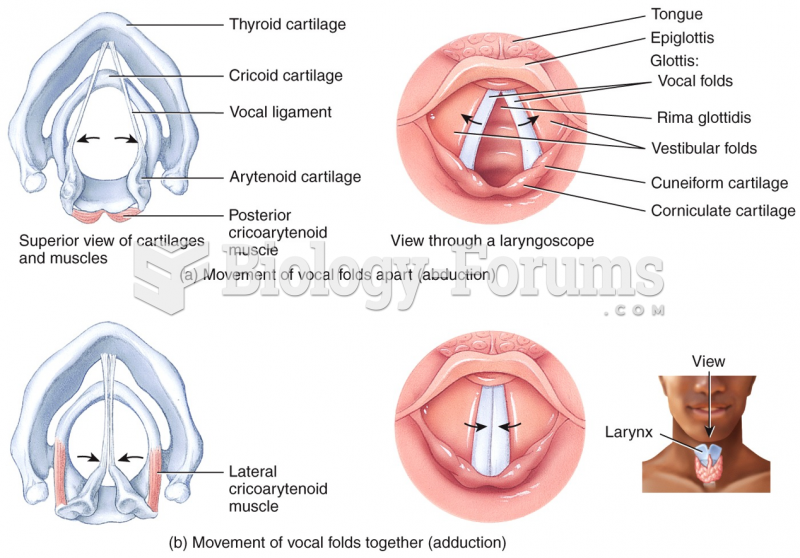|
|
|
The B-complex vitamins and vitamin C are not stored in the body and must be replaced each day.
Human kidneys will clean about 1 million gallons of blood in an average lifetime.
The Centers for Disease Control and Prevention (CDC) was originally known as the Communicable Disease Center, which was formed to fight malaria. It was originally headquartered in Atlanta, Georgia, since the Southern states faced the worst threat from malaria.
Asthma attacks and symptoms usually get started by specific triggers (such as viruses, allergies, gases, and air particles). You should talk to your doctor about these triggers and find ways to avoid or get rid of them.
Egg cells are about the size of a grain of sand. They are formed inside of a female's ovaries before she is even born.







